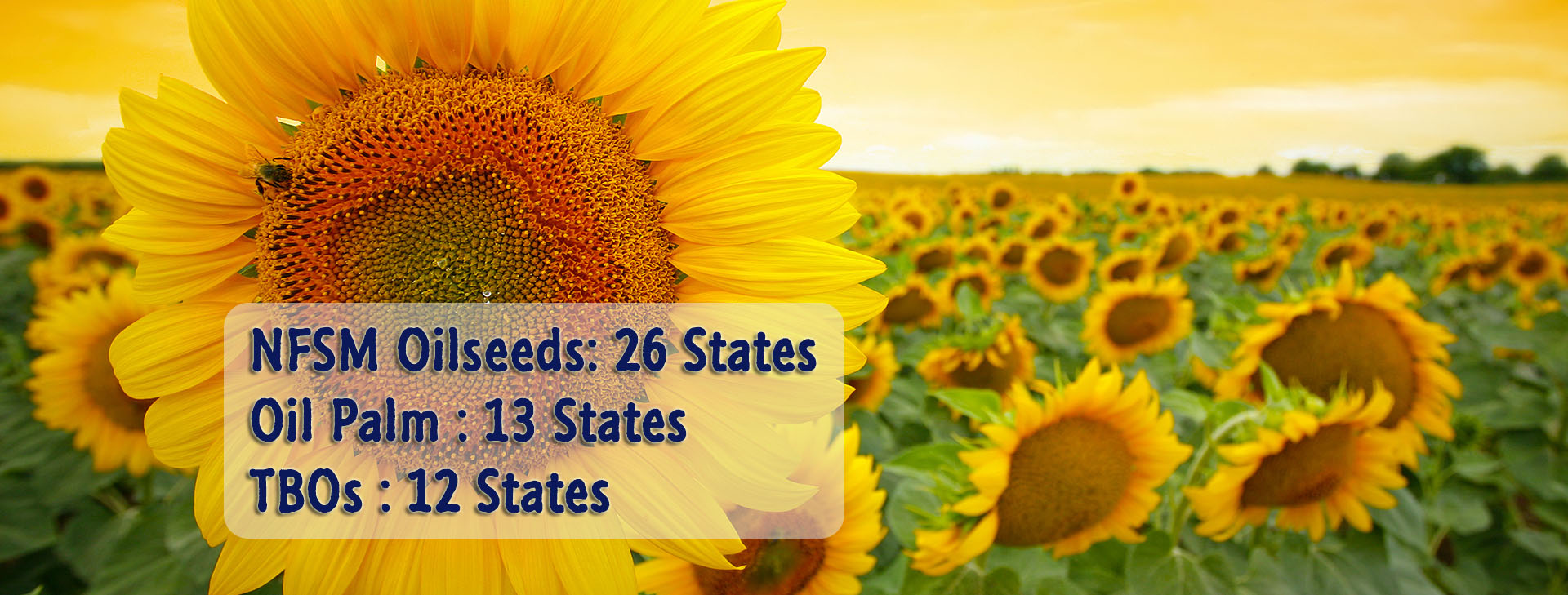New Delhi: In a concerted effort to enhance domestic production and reduce the import burden of edible oils, the Government of India has been actively implementing several initiatives, including the National Food Security Mission- Oilseeds & Oil palm (NFSM-OS&OP). Launched in the fiscal year 2018-19, this Centrally Sponsored Scheme aims to increase the production and productivity of nine oilseed crops and expand the cultivation of Oil Palm & Tree Borne Oilseeds across the country.
Under the NFSM- Oilseeds, farmers receive incentives and subsidies through the State Government for three key interventions: (i) seed component, covering the purchase and distribution of breeder seeds, production of foundation and certified seeds, and distribution of seed minikits; (ii) production inputs component, including seed storage bins, Plant Protection (PP) equipment, chemicals, farm implements, sprinkler sets, and more; and (iii) technology transfer component, encompassing demonstrations, training, and research projects.
Building on the success of NFSM- Oilseeds, the Government introduced the National Mission on Edible Oils (Oil Palm) – NMEO (OP) in the fiscal year 2021-22. This mission specifically focuses on promoting oil palm cultivation, with a vision to make the country self-reliant in edible oils. A special emphasis is placed on the North Eastern States and Andaman & Nicobar Islands, with a target to increase the area under Oil Palm from 3.70 lakh hectares to 10.00 lakh hectares by 2025-26.
Both NFSM- Oilseeds and NMEO (OP) share the common objective of augmenting the availability of edible oils by boosting production and productivity, ultimately reducing the dependency on imports. In addition, the Rashtriya Krishi Vikas Yojana- RAFTAAR (RKVYRAFTAAR) supports oilseed-related activities, allowing states to implement programs on oilseeds with the approval of State Level Sanctioning Committee.
The Finance Minister, during the budget speech in 2024, announced a strategic plan to achieve self-reliance (atmanirbharta) for oilseeds such as mustard, groundnut, sesame, soybean, and sunflower. The strategy encompasses research for high-yielding varieties, modern farming techniques, market linkages, procurement, value addition, and crop insurance.
Thanks to these government efforts, the import dependency on edible oils has decreased from 63.25% in 2015-16 to 57.30% in 2022-23. Concurrently, domestic production has risen from 36.75% in 2015-16 to 42.71% in 2022-23, despite an overall increase in demand.
To further address issues related to seeds and promote dialogue, the Ministry of Agriculture and Farmers Welfare organizes National Conferences on Agriculture Campaigns before the sowing seasons of Zaid, Kharif & Rabi. These conferences serve as platforms to discuss various concerns and strategize for a sustainable and self-reliant future in edible oil production.





